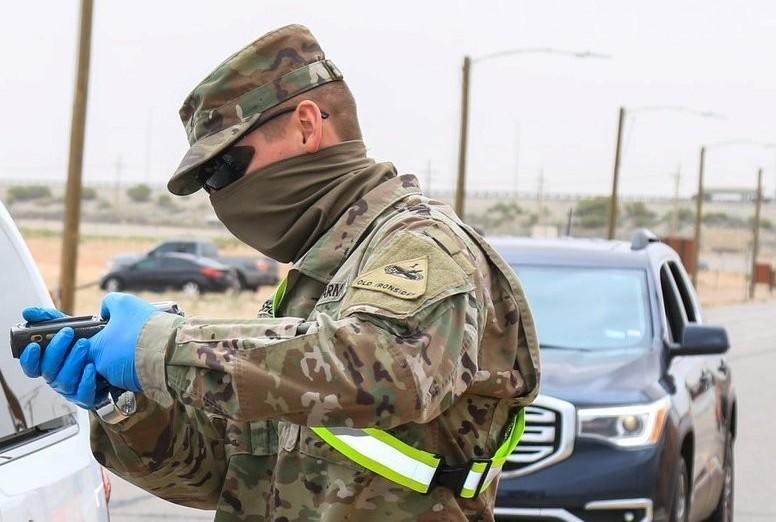For now, like other Americans, soldiers are fashioning makeshift face coverings from T-shirts and scarves to blunt the spread of COVID-19 as they adapt to new military policy.
But soldiers wanting to complement their combat uniform with a camouflage face covering have a problem: they cannot cut up and adapt the material from their combat clothes because it is treated with special chemicals.





